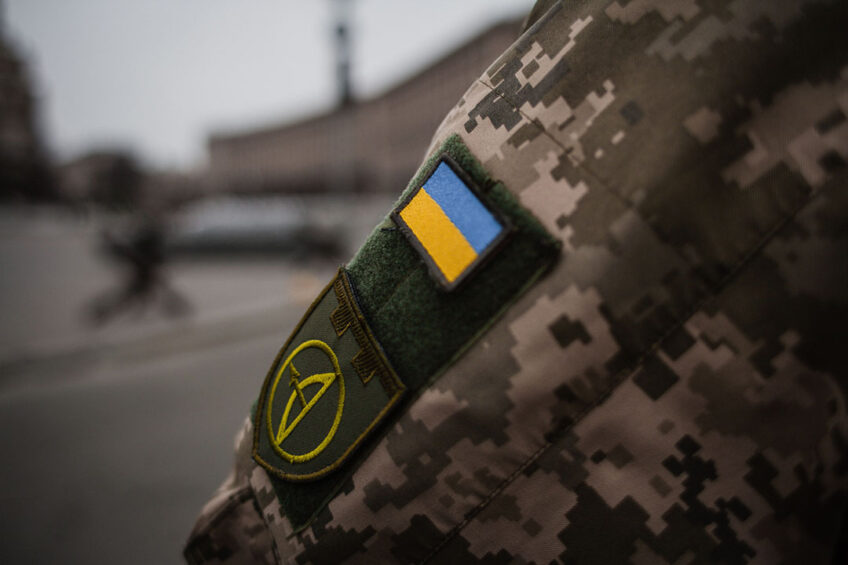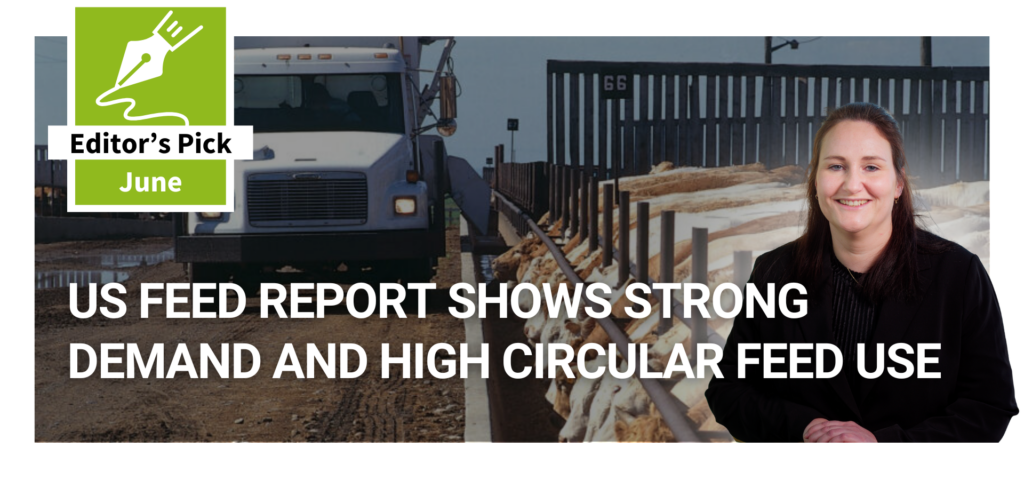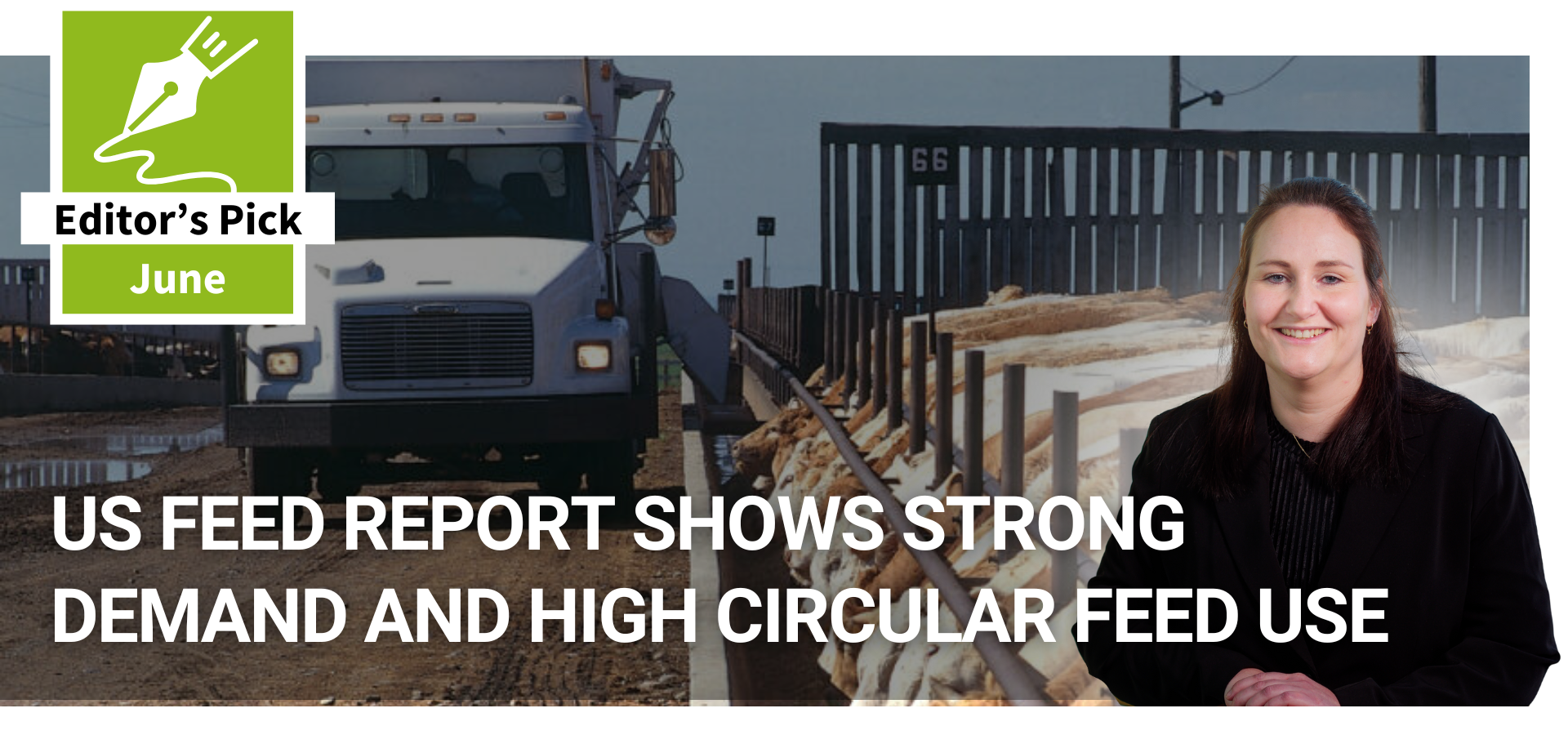Russian grain and feed sectors suffer as war in Ukraine continues

The continuing war in Ukraine is starting to weigh heavily on Russian agriculture, though the middle-term production and export prospects still look optimistic.
On Wednesday, September 21, Russian President Vladimir Putin announced the first military mobilisation in the country since the second world war. The move was followed by the formal annexation of temporarily occupied parts of Luhansk, Donetsk, Kherson and Zaporozhe regions – territories with fertile soil and access to sea infrastructure critical for grain exports.
Russia to collect 150 m tonnes of grain
During a government meeting on September 27, Putin claimed that in 2022, Russia, under a preliminary assessment, would collect as much as 150 million tonnes of grain. This figure would be far beyond the 2017 record of 135.5 million tonnes, and the 127 million tonnes collected by Russia during the Soviet times back in 1978.
“In the current difficult situation, we are completely guaranteed to cover our own needs for the most important items and receive an additional resource for increasing exports,” Putin said.
Russia smuggling Ukrainian grain
The rise in production is attributed to favourable weather conditions across Russia this year, but other factors also might be in play. In early October, an investigation by the Associated Press showed that Russia smuggled grain worth $530 million from the temporarily occupied regions of Ukraine. Over the past few months, 36 ships have reportedly been making voyages carrying Ukraine grain to the Middle East.
Since early October, Russia has considered the parts of Ukraine controlled by its armed forces as its own territory, meaning all grain produced in these regions during the current harvest season it will also label as products of Russian origin. The present situation in the occupied regions is not fully clear, though the Russian-occupied administration claimed that local farmers kept operating.
Mobilisation causing chaos
On the other hand, multiple reports indicate that the Russian grain industry is in big trouble, as conscription sucks much-needed labour resources from Russian farms.
So far, there is complete uncertainty with this issue. We believe that people responsible for the life of animals should not be mobilised
A farmer’s view
Vasily Melnichenko, a farmer from the Urals, complained that less than 2 weeks into mobilisation, the labour force in the Russian grain industry already ran dry.
“I’ve recently got a call from a familiar farmer from the Volgograd region. He had 880 hectares of sunflowers left, and they did not have time to finish the harvest, as 2 combine operators were taken away,” Melnichenko said, adding that the picture is similar for almost every farmer he knows.
“At my farm, a field of 480 hectares of barley remained unharvested, and 80 hectares of potatoes had not yet been harvested, as 2 combine operators were also mobilised. There is only one combine driver left. We simply cannot cope [with the harvest campaign] like that,” he said.
Farms left unattended
In some areas, the Russian authorities reportedly called up farmers, though nobody was left to watch over the farms. Under the Russian legislation, Melnichenko said, even family members have no legal right to run the farm while the owner is absent. This means that some businesses may simply go down while their owners are away fighting in Ukraine.
Calls to make some regions exempt
In addition, Melnichenko called the authorities to avoid conscription from the regions where the demographic situation was already dire. However, the reality is quite the opposite. On the contrary, there are signs that most men are being called up from rural areas, where the population has been steadily shrinking over the past few years. For instance, the Russian independent outlet New Gazette. Europe reported that in the village Tumenevo, Kemerovo region, the entire male population of 58 men was gathered into the Russian army, and conscription practices were similar in neighbour villages.
You can’t just withdraw workers here and there and expect that everything would operate as if nothing happened
Sectors asking for exemption
When qualified personnel are being conscripted, this hurts the harvesting campaign, Arkady Zlochevsky, president of the Russian Grain Producers Union, said, adding that grain harvest is not the only thing that is on the line due to the ongoing mobilisation.
“When the head of the grain trading organization is called up, the company curtails operation,” Zlochevsky said, adding that even before the start of the mobilisation, things in the Russian grain industry were far from perfect.
“We have already applied [to the government] and will ask for a deferment, reservations for the most critical jobs that cannot be removed now – it is necessary to leave these people in work. This is much more important than if they would be called up. It is mandatory to preserve the economic machine and agricultural production,” Zlochevsky concluded.
The pleas from the farmers’ association are unlikely to be heard since virtually all industries are asking the authorities the same. To date, every third company in Russia has reportedly applied to the authorities seeking a deferment from the mobilisation for its employees. However, so far, the government seemed reluctant to expand the approved list of specialities eligible for protection from conscription.
Export duty and sanctions incur losses
In the meantime, Russian grain farmers find themselves in rather bad financial health, stemming from the floating export duty and a lack of export markets this season. The floating duty on wheat, barley and corn remained in effect in Russia since June 2, 2021, despite repeated protests from the farmers’ organization.
In the background of the Russian invasion of Ukraine, the number of export contracts for Russian grain dropped tremendously. In the first half of 2022, Russia exported grain to 17 countries, compared to 40 in the first half of the previous year. Russia currently exports grain to the Middle East: Saudi Arabia, Libya and Lebanon, Iran, Egypt, and Turkey. The Russian Agricultural Ministry explained that in most other directions, exports are indirectly are hampered by Western sanctions.
In August, Russia exported 4.7 million tonnes of grain, 23% less than in August of 2021, the Russian grain union estimated.
The Russian Grain Union has recently warned that a high grain harvest and weak exports have led to “an almost non-stop fall in purchase prices, which, coupled with rising transport costs, approaching the level of production costs.”
“In the Volga region, wheat prices fell to 6,000 to 7,000 roubles ($100 – $115) [per tonne]. This is an absolutely unacceptable price level because the average cost is 10,000 roubles per tonne ($165),” Zlochevsky said, adding that in other regions, the figure was higher but not entirely comfortable for grain farmers.
Due to a lack of exports, Russian farmers may face a shortage of grain storage and drying capacities. In August 2022, the Russian wheat stocks reached 31.796 million tonnes – the highest level since 2011.
Large-scale grain exports can correct the situation, “but it faces both external informal restrictions and internal problems, primarily a floating duty on grain, which further hampers export.”
“As a result, grain exports are extremely sluggish and inadequate to the scale of production, which decreased not only in terms of supplies, falling back to the level of the 2016/2017 agricultural year but also in terms of the number of importing countries,” the Grain Union said.
Financial hardship for farmers
According to the Grain Union, a part Russian grain farmers may lose financial stability and experience difficulties repaying loans, which creates risks not only for the winter sowing campaign, and undermines the investment attractiveness of grain production.
Some Russian grain farmers are confident that the export duty now performs exclusively a fiscal function: collecting additional funds into the Russian budget, the incomes of which have dwindled due to the Ukraine war.
On the brink of turmoil
The Russian Agricultural Ministry works on maintaining production volumes amid the partial mobilisation, the Russian deputy Agricultural Minister Oksana Lut said, speaking at a Russian Parliament session.
“We are working to ensure that the companies operate as usual so that a sufficient number of people remain [at the production facilities], and the production would not drop,” Lut said.
Immigration wave
The unprecedented immigration wave worsens the labour shortage in Russian agriculture. In early October, Forbes reported that from 700,000 to 1 million Russians, primarily men of the conscription age fled the country since September 21.
On the brink of turmoil
Under the condition of anonymity, a source in the Russian feed industry described the present situation as extremely tense, as there is no clarity on how many workers can be called up. The source said that operations could be temporarily disrupted at some feed mills if all workers who got mobilisation notices were called up.
“This is similar throughout the entire supply chain. You can’t just withdraw workers here and there and expect that everything would operate as if nothing happened,” the source said, estimating that losing even a few people in key technical positions could jeopardize the entire operation.
There are also mounting fears over the state of demand in the Russian feed market, as the ongoing mobilisation hurts all livestock segments. Roman Kostyuk, general director of the Russian Union of beef producers, told the Russian magazine Agroinvestor that farmers are discouraged by the current mobilisation practices.
“I know that in a number of regions, in response to mobilisation notices, farmers turned to the vice-governors asking where to drive their herd to when they leave – to the governor’s administration or directly to the military registration and enlistment office?” he said, adding that the regional authorities try to sort out such cases because they understand that conscripting farmers, they could ruin their business and drive them to bankruptcy.
“So far, there is complete uncertainty with this issue. We believe that people responsible for the life of animals should not be mobilised,” Kostyuk said.







